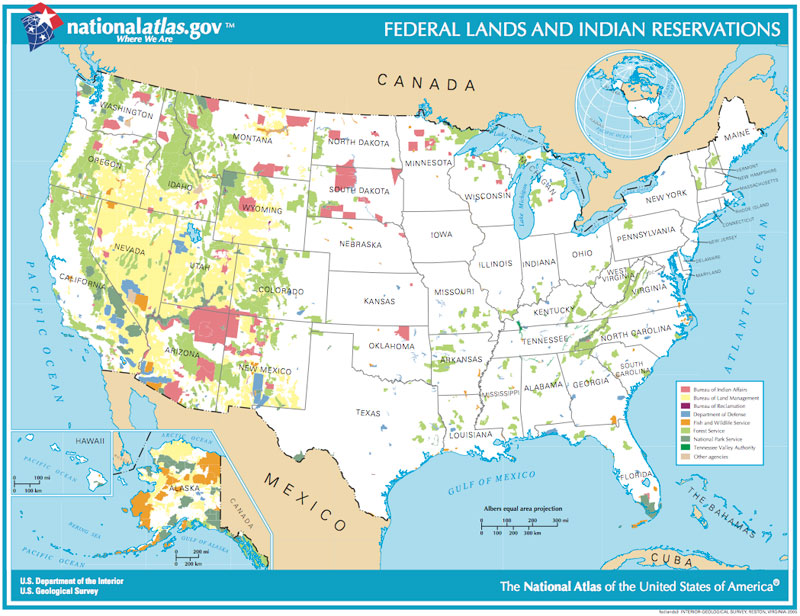On January 27, 2021, the Western Energy Alliance filed a federal lawsuit against President Biden’s ban on oil and gas leasing on federal lands and waters, arguing that Mr. Biden’s leasing moratorium exceeded his authority and violated a number of federal laws, including the National Environmental Policy, the Mineral Leasing Act and the Federal Lands Policy and Management Act. The Alliance argues that the law is clear: Presidents do not have authority to ban leasing on public lands. All Americans own the oil and natural gas beneath public lands, and Congress has directed them to be responsibly developed on their behalf. The federal government owns nearly 50 percent of the land in the Western part of the lower 48 states. In 2019, federal lands and waters accounted for 22 percent of U.S. oil production and 12 percent of natural gas production.
Lower 48 Shale Plays

The Alliance filed suit in the U.S. District Court for the District of Wyoming. The state ranks first in federal natural gas production and third in oil and has more federal acres leased than any other state. Wyoming depends on some $150 million a year in oil and gas federal mineral royalties to fund K-12 schools and sees this ban as an assault to education, particularly to America’s youth.
According to the Alliance, the type of environmental analysis that President Biden has announced will take years to complete, likely lasting most if not all of the president’s first term. According to a recent economic study from the Wyoming Energy Authority, the cost of Biden’s ban will be a reduction in Gross Domestic Product across eight western states (Wyoming, New Mexico, Colorado, Utah, North Dakota, Montana, California, and Alaska) of $33.5 billion, 58,676 jobs lost annually, a drop in wages of $15 billion, and a loss in state tax revenue of $8.3 billion. Wyoming and New Mexico would be hit the hardest.
The eight western states produced on average 37 and 32 percent of the oil and natural gas production in the United States, respectively, from 2003 through 2019. Total federal oil production for these states more than tripled since 2003 due to horizontal drilling and hydraulic fracturing, increasing from 260 to 793 thousand barrels per day. As the figure below shows, the gains in oil production were led by New Mexico, Wyoming, and North Dakota, which together produce 90 percent of total federal oil production.
Federal oil production by state

Federal natural gas production increased from 8 to 8.9 billion cubic feet per day from
2003 to 2019, an increase of 10.9 percent. Federal lands in Wyoming remain the largest producer of natural gas. Its production peaked in 2009 during the coal bed methane boom, as the figure below denotes. New Mexico, Colorado, and Utah are the next three largest producers of natural gas from federal lands.
Federal Natural Gas Production by State

The Western Energy Alliance made several other points in its press release:
- Companies returned $4.2 billion in onshore and $5.6 billion in offshore leasing revenue and royalties in 2019.
- If extended, over the next 20 years the Biden Ban would result in $639.6 billion in lost GDP, $286 billion in lost wages, $151 billion in lost state tax revenue, and job losses reaching 343,088 annually, according to the Wyoming Energy Authority study.
- The Great American Outdoors Act was signed into law on August 5, 2020. It directs up to $1.3 billion annually toward addressing the $13 billion maintenance backlog at national parks. The funding comes from royalties and leasing revenues paid by companies to the federal government from oil and natural gas development on public lands. The law also directs $900 million annually to the Land Water Conservation Fund from offshore leasing and development.
Conclusion
The Western Energy Alliance is suing the Biden Administration because Biden’s executive order banning oil and gas leases on federal lands exceeds his presidential authority and violates the Mineral Leasing Act, National Environmental Policy Act, and the Federal Lands Policy and Management Act. The suit was filed in the U.S. District Court for the District of Wyoming, which has the greatest number of federal acres leased and produces the most natural gas on federal lands of any state. An economic study shows that the ban would hurt the economy of eight western states that produce oil and natural gas, result in massive job losses, and cut wages and state tax revenues. Clearly, with the United States recovering from the coronavirus pandemic and many hurting for jobs with unemployment nationwide at 6.7 percent, this is not the time to take good-paying jobs away from the American people. Nor is it a good time to increase future energy prices by withholding potential supply from prolific oil and gas producing lands owned by the American public.



